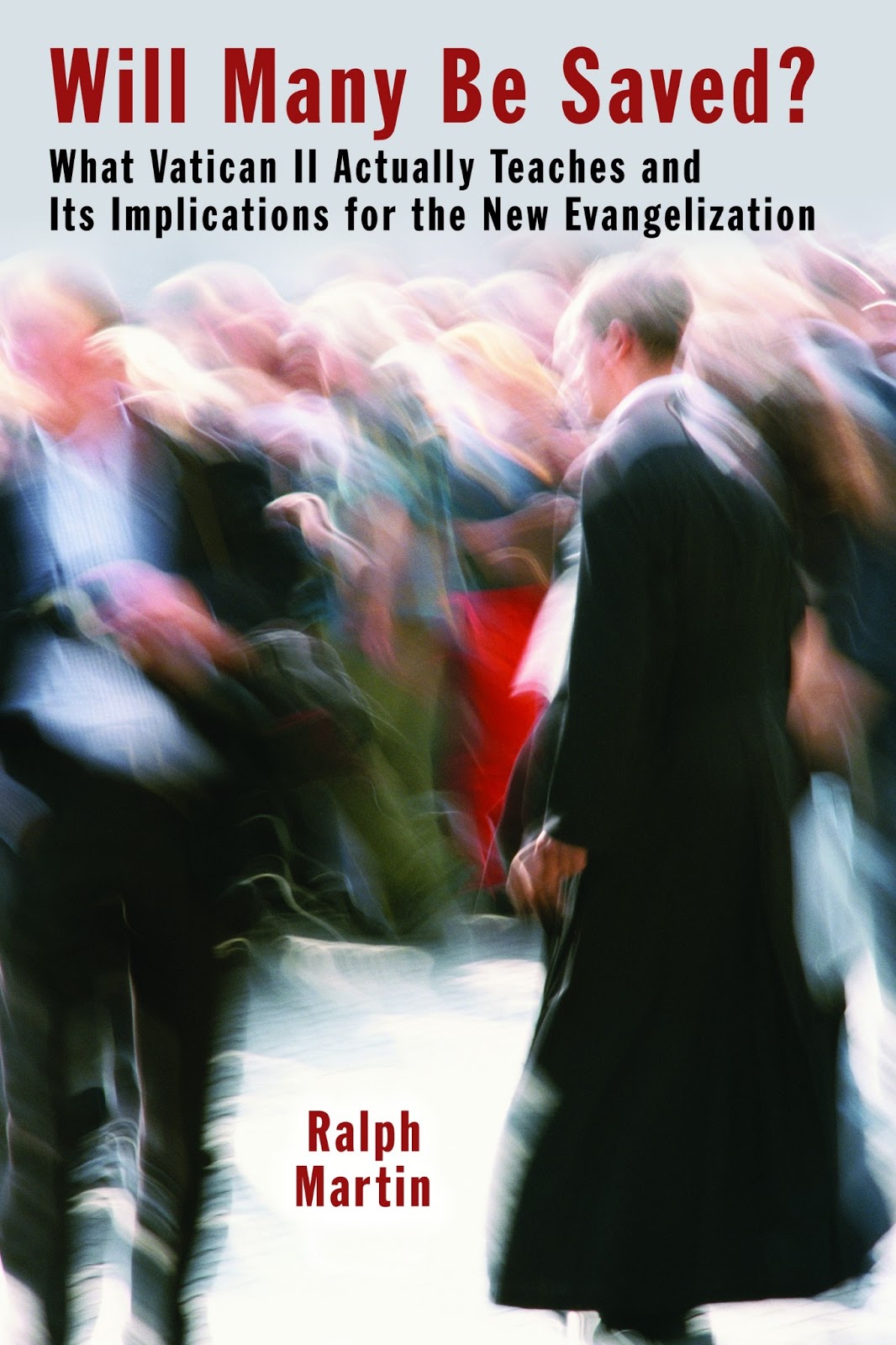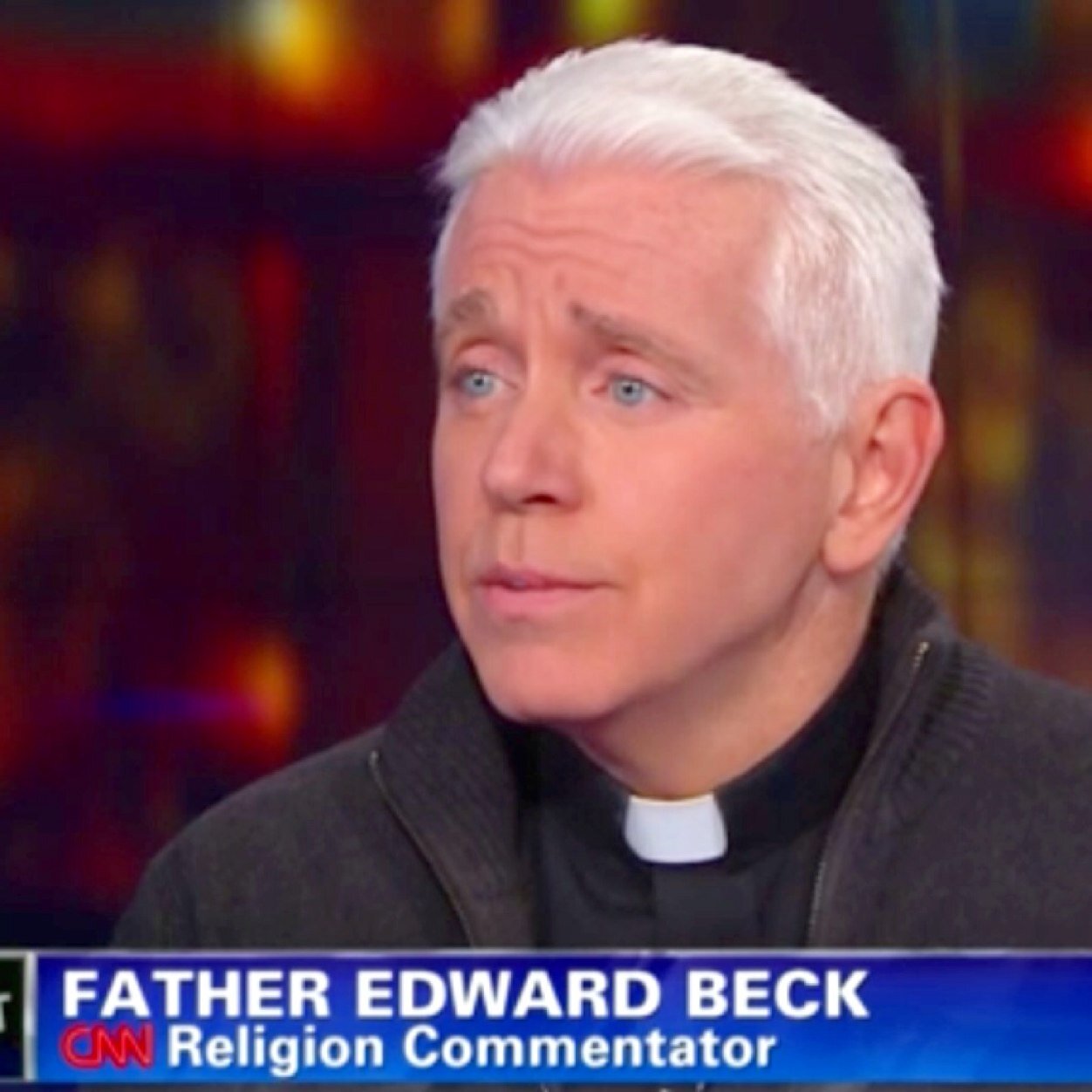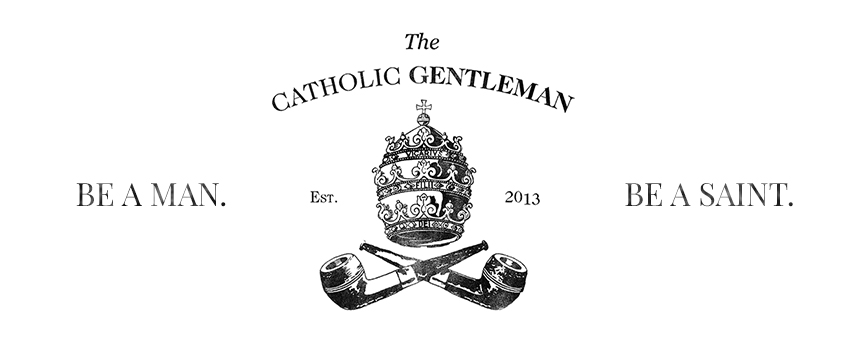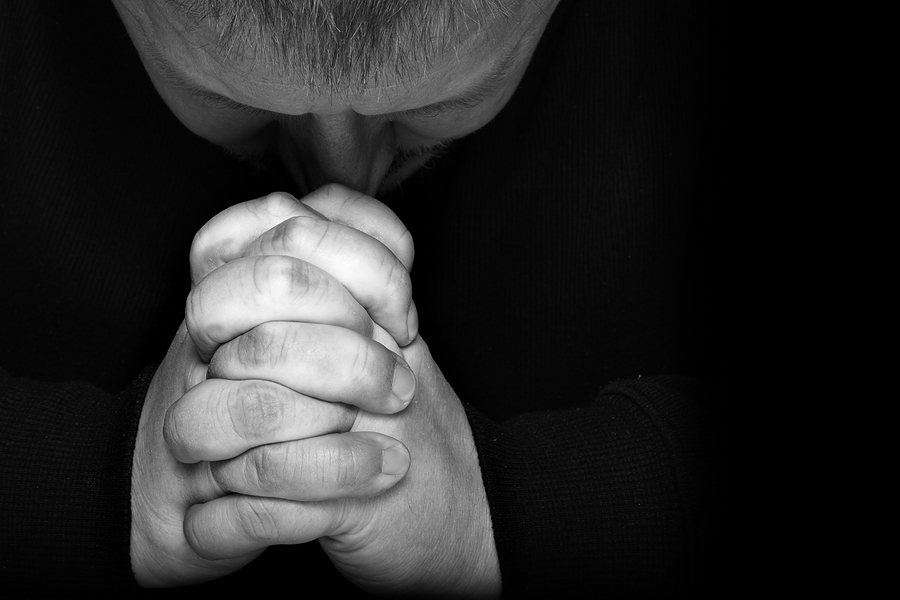
A healthy, mature Catholic faith requires refraining and protecting oneself from scrupulosity. What is scrupulosity? Read on. Beware of malpracticing, even well intentioned clerics, bishops, Orders, laypeople and groups. They ARE out there. Go where by parish, priest, people, His everlasting mercy and love are embraced, practiced, and offered. JOY IS YOUR EVERLASTING BAPTISMAL RIGHT!!!! Especially so among the purported faithful. It is their baptismal obligation to ensure this for you!!! NEVER settle. NEVER! He is worth not settling!!! And, so ARE YOU, in His image and likeness. Require you be treated as such. Require it! Always! NO exceptions!!!! NONE!!! The Lord demands, requires, and orders it so!!! Jn 13:34. Loving Jesus DOES NOT mean or ever imply being a door mat, or close, or worse. Suffering is part of life. Pray for those who cause it for you, but abuse is never ok, especially anywhere near or around church, ever.
If you don’t feel like you are in the presence of Jesus Himself among others (esp. Christians!), you’re in the wrong place! If you’re pressured, made to feel bad, instead of being gently counseled to consider your actions and their effect on yourself, others, your soul, your future, its implications if you continue, you’re in the wrong place. Trust me. Been around the Catholic block…a little. HEALTHY Catholic clergy and laypeople ARE the majority. Be discriminating in this vital area. The love and mercy of the Lord does not hurt. Quite the contrary. Seek out a healthy and well-balanced confessor. Trust in His (the Lord’s, and hopefully, your confessor’s) 🙂 everlasting mercy. That is not presumption, that is Divine Mercy. Divine Mercy!! Divine Mercy!!! Amen. Amen. Amen. Praise Him! Praise Him, Church!!!
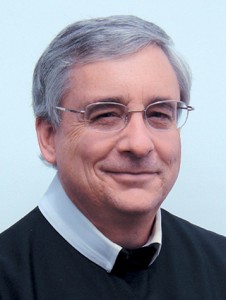
-by Rev. Thomas M. Santa CSSR (Fr. Thomas M. Santa, a Redemptorist priest, holds masters degrees in religious education and divinity. He is director of Scrupulous Anonymous and president and publisher of St. Louis-based Liguori Publications. His book Understanding Scrupulosity is available from Amazon.)
“The Vatican II document “Church in the Modern World”(Gaudium et Spes) offers a beautiful image of the center of the human person: “Deep within his conscience man discovers a law which he has not laid upon himself but which he must obey. Its voice, ever calling him to love and to do what is good and to avoid evil, tells him inwardly at the right moment: Do this; shun that. For man has in his heart a law inscribed by God. His dignity lies in observing this law, and by it he will be judged.” For each human person, our conscience — the core of our being — can be a place where we are “alone with God Whose voice echoes in His depths” (16).
For most people of faith, such an image is appealing. But for some the thought of communicating this intimately with the Lord produces a feeling not of comfort but of terror. Such people are convinced that because of the presence of evil in their life, God must be displeased with them. As a result, any sin — any manifestation of weakness or imperfection, often the most minute and insignificant — becomes their primary preoccupation, and an intimate relationship with the Lord is impossible.
This type of affliction is often called a “tender conscience,” but a more accurate description of people who suffer in this way is that they are scrupulous. Every priest who has ever sat in the confessional is well aware of such people’s spiritual struggle. Indeed, all those in the helping professions — priests, ministers, spiritual directors, and assorted health professionals — have individuals come to them seeking relief from the torment of the “thoughts that will not go away.” The scrupulous conscience is not the place of comfort and sanctuary that the Fathers of the Vatican Council speak about. It is a place of anxiety, frustration, and the never-ending struggle to determine what is sinful and what is not.
For people who have never struggled with a scrupulous conscience, this description might come as a surprise. In common usage, the word scrupulous means strict, careful, or exact. For example, we might speak favorably about a lawyer who scrupulously prepares his case so that every detail is studied or an accountant who scrupulously reviews his client’s balance sheet. But in the formation of conscience, scrupulosity is an altogether different thing.
What Is Scrupulosity?
In Catholic moral teaching, scrupulosity defines the spiritual and psychological state of a person who erroneously believes he is guilty of mortal sin and is therefore seldom in a state of grace. A scrupulous person has difficulty making choices and decisions even though he desires above all else to please God and to follow God’s law. For a scrupulous person, it isn’t that he doesn’t “carefully attend to the sacred and certain teaching of the Church” (as the Catechism teaches), but that he becomes overwhelmed with the details and nuances that may be present in the decision.
An example of the “crooked thinking” of a scrupulous conscience may be helpful. All of us are aware of the need to abstain from all food and beverages for one hour before the reception of Communion at Mass. We are aware that this is one of the conditions the Church expects us to fulfill for the worthy reception of the sacrament. We are also aware that this is nowhere as demanding as the previous prescription for a three-hour fast — or the even older fast from midnight of the night before — that was once part of our spiritual practice. Most of us do not become preoccupied with the prescription because it is so easily followed.
This is not the case for a scrupulous person. One hour is sixty minutes fraught with the possibility of making a mistake. There is confusion over what constitutes breaking the fast. For example, does lipstick break the fast? Or say a piece of food is dislodged from your teeth, despite your best efforts at brushing and flossing, and you inadvertedly swallow it. Does this action break the fast? Or perhaps the celebrant is a little quicker today than normal and you are not sure you’ve fasted for the entire sixty-minute period. What to do? To receive Communion may well be to risk sacrilege, the deliberate and unworthy reception of the Body of Christ.
Imagine how a person might feel consumed in this way by the doubt, fear, and anxiety of scrupulosity. One author described the experience of scrupulosity as “a thousand frightening fantasies” and yet another author as the “doubting disease.” Despite a person’s best efforts, despite his absolute commitment to the moral teaching of the Church, and despite his desire to serve the Lord, he is unable to arrive at a point of peace, confident that he’s done as much as can reasonably be required.
Formation Of Conscience
The Vatican Council teaches that, “in forming their consciences the faithful must pay careful attention to the sacred and certain teaching of the Church” (Dignitatis Humanae 14). The Catechism of the Catholic Church takes up the theme: “Man strives to interpret the data of experience and the signs of the times assisted by the virtue of prudence, by the advice of competent people, and by the help of the Holy Spirit” (1788). The informed conscience that emerges from this experience of formation can guide and lead a person on the path to the kingdom. Unfortunately, the Catechism does not specifically address the scrupulous person when it teaches about the duty to acquire a well-formed conscience.
That being the case and despite the obstacles, a scrupulous person may well be formed correctly and possess the knowledge of what is sinful and what may not be sinful. In fact, those who minister to the scrupulous find that they are often well versed in the moral law and the Commandments. What seems to be missing is the skill necessary to apply the moral law to the choices and the decisions that are a part of daily living.
How is it possible to know the objective truth yet be unable to apply it to daily life? Psychologists suggest that the key to understanding the scrupulous condition may lie in the childhood experiences of scrupulous individuals. Perhaps there was a rigid and repressive atmosphere in the home or too much of an emphasis on strict adherence to rules. Perhaps the parents were rigidly religious and overprotective. Negative attitudes expressed about God, morality, and sexuality — especially if these attitudes were communicated by authority figures — might also provide some sort of insight into how the condition was acquired.
Recent research suggests that scrupulosity may well be best described as a type of obsessive-compulsive disorder (OCD). People who suffer from OCD experience obsessive thoughts that they cannot control about such things as aggressive acts, recurring thoughts involving obscene language, and constant focus on thoughts of germs and disease. Compulsive acts might include repeated dressing and undressing or the need to repeat certain words or phrases again and again. (Jack Nicholson gave a compelling portrayal of OCD behavior in the 1997 movie As Good As it Gets.) Continuing research into the possible connection between OCD and scrupulosity offers the potential for understanding the affliction that can only help future pastoral care.
From a religious viewpoint, the factor that seems most prevalent in the development of scrupulosity is a negative image of God. There is an exaggerated fear of all that is sacred manifested in any encounter with God or the Church. The sacraments — especially the Eucharist and confession — provide the most opportunity for anxiety. Prayer, both private and communal, often causes the anxiety and frustration identified with scrupulosity.
Regardless of how the scrupulous person got that way, the formation of his conscience, even with the best education and training, is a secondary concern — and may even be counterproductive — until the scrupulosity is identified and addressed. The moral freedom necessary to make sound decisions is absent. Since there is not present “ignorance of Christ and his gospel, enslavement to one’s passion, assertion of a mistaken notion of autonomy” (CCC 1791), perhaps the pastoral concern should not be to form a conscience but rather to help the person be freed from his scrupulosity — or if not freed, at least to experience some relief.
Scrupulous people hopefully realize that it is not because of a lack of effort on their part or because of a lack of commitment to Gods will that they suffer this affliction. Although the root cause of scrupulosity is not known, the person who suffers most certainly does not choose it. The fear and the anxiety that scrupulosity produces within the person as he strives to do the will of God are symptoms of the affliction and not an indication that the person is somehow displeasing to God. Because of their suffering, it is not too much of an assumption to believe that the Lord must be preparing a special place for the scrupulous.
The Traditional Pastoral Approach
In order to seek some relief or sense of assurance, scrupulous people often fall into a pattern of constant confession, spiritual direction, or professional counseling. Often the scrupulous person is seeing several people for counsel, each of whom is unaware of the others and is repeating advice and giving direction. More often than not the scrupulous person exhausts the people who are attempting to help. This leads to frustration in the helper and panic in the scrupulous person.
For this reason, a single, trained, patient, and informed confessor remains the best help and hope for the scrupulous person. This approach has as its source no less of an authority than St Alphonsus Liguori, bishop and doctor of the Church, patron of moral theologians — and also a person who suffered from scrupulosity and who is known to have worn out the confessors of Naples in his search for relief. St Alphonsus teaches, “I tell you that you should implicitly trust in obedience your confessor. This advice is given by all of the doctors of the Church and the holy fathers as well. In short, obedience to your confessor is the safest remedy which Jesus Christ left us for quieting the doubts of conscience, and we should give thanks for it.”
Despite the recommendation of the saint, it is often difficult for a person with scrupulosity, even it he recognizes the wisdom of the advice, to enter into a relationship with a single confessor. It is challenging to find a priest confessor who is willing to commit to this kind of relationship, often because of a feeling of inadequacy. Even if a priest confessor can be found, the scrupulous person is often hesitant to commit to one person to direct his spiritual growth because of a fear that he may have chosen someone who is not well trained or who is perhaps too patient and kind.
Regardless of how the scrupulous person might feel, he must force himself to choose this remedy. Not coincidentally, ultimate relief from the affliction of scrupulosity lies in the choice to act against fear and doubt.
Although commitment to a single confessor is of primary importance, another help is available. Understood as supportive and supplementary to the work of the confessor and the grace of the Holy Spirit, membership in Scrupulous Anonymous (SA) is also recommended.
SA has no meetings. It accomplishes its work through correspondence and the mutual prayer and support of its members. The primary vehicle for this correspondence is a monthly newsletter, Scrupulous Anonymous. Edited by a priest director, the newsletter is sent free to all who request it. During the more than thirty-five years that SA has been in existence, its members have demonstrated repeatedly that those who follow the direction of a single confessor and who use the monthly helps and encouragement that are provided in the newsletter can enjoy support and relief in their struggle. Often they are able to escape altogether the torment of scrupulosity.
The SA newsletter, suitable for both those who suffer from scrupulosity and their priest confessors, may be obtained by writing to SA, One Liguori Drive, Liguori, Missouri, 63057. Names and addresses, as well as all correspondence, are confidential.
A spiritual director is a good choice for all people who desire to progress in spiritual growth and development. But for the scrupulous person, such an individual is essential. Scrupulosity is a terrible spiritual affliction that makes it difficult for a person to believe in the mercy and forgiveness of a loving Father. Despite their best efforts and their commitment to moral teaching and the Commandments, scrupulous persons struggle daily on their spiritual journey. Working together with a trained and patient confessor, a scrupulous person can learn to act against his compulsion and slowly come to know the peace and confidence promised to those of good faith.”
You may also enjoy: http://www.catholic.com/magazine/articles/scrupulosity-the-occupational-hazard-of-the-catholic-moral-life
Love,
Matthew
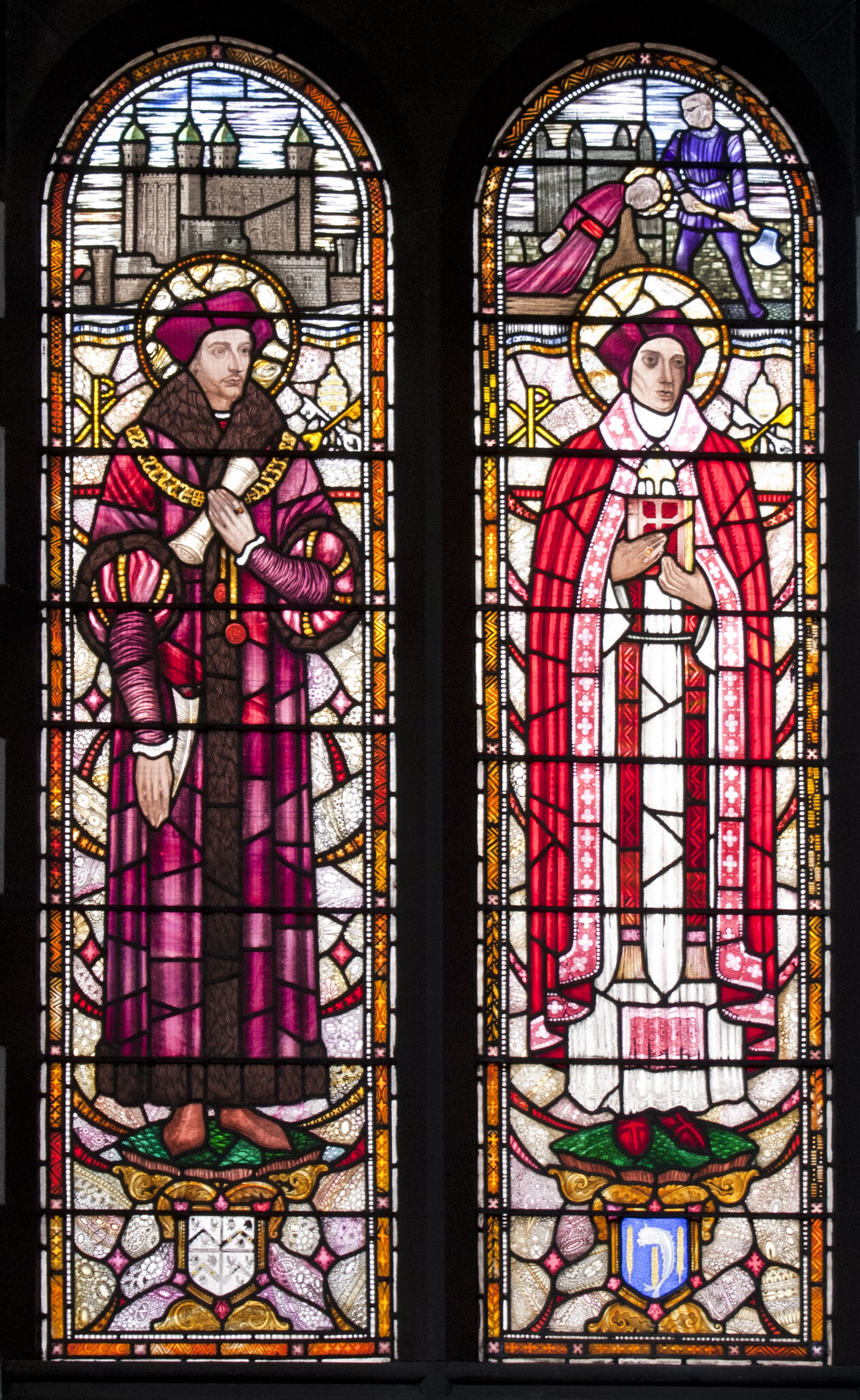
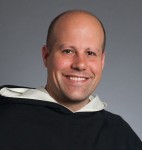



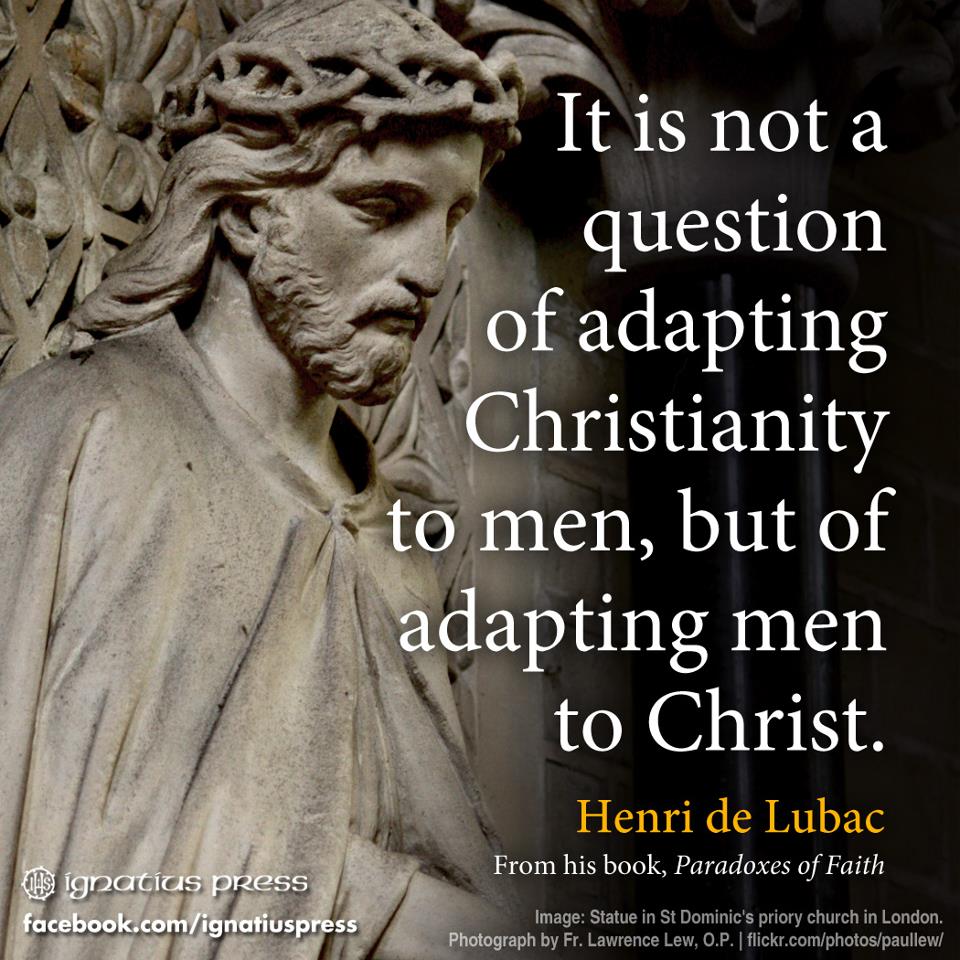


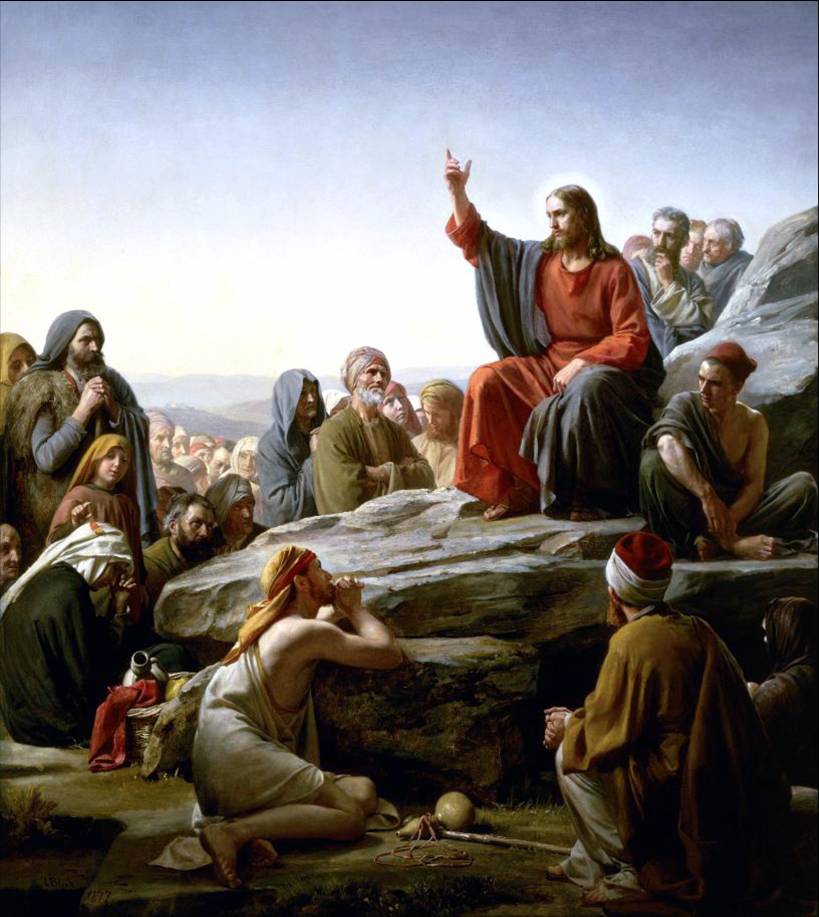
 (Vatican Radio) In following Christ, one walks with perseverance and without triumphalism, said Pope Francis in his homily during Friday morning’s Mass at Casa Santa Marta. The Mass was attended by personnel from Libreria Editrice Vaticana, including the director of the publishing house, Fr. Giuseppe Costa, as well as personnel from the Vatican pharmacy and perfume shop.
(Vatican Radio) In following Christ, one walks with perseverance and without triumphalism, said Pope Francis in his homily during Friday morning’s Mass at Casa Santa Marta. The Mass was attended by personnel from Libreria Editrice Vaticana, including the director of the publishing house, Fr. Giuseppe Costa, as well as personnel from the Vatican pharmacy and perfume shop.

